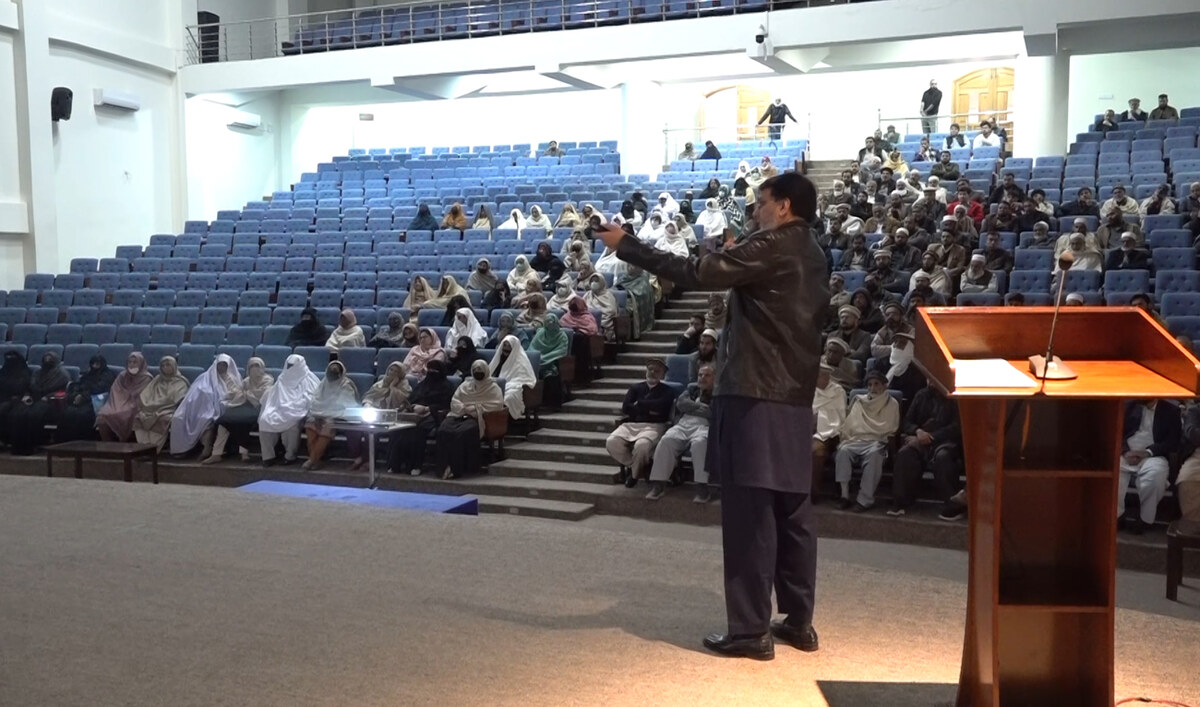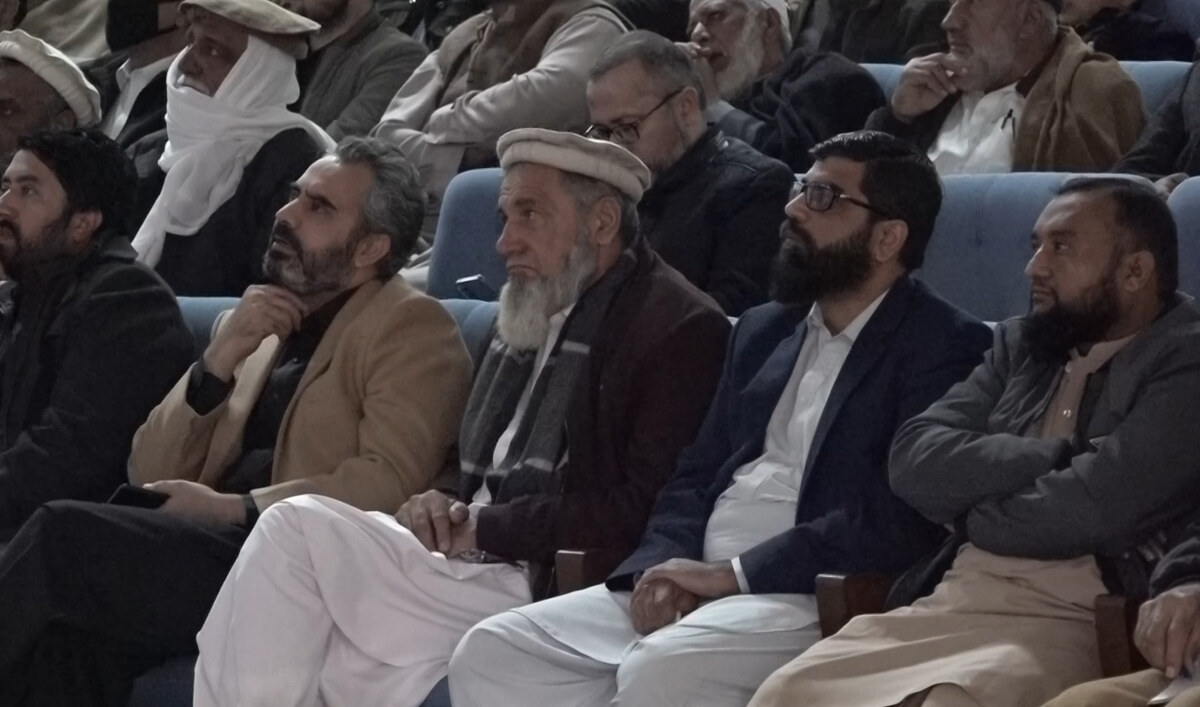PESHAWAR: Pakistan’s religious affairs ministry on Saturday initiated mandatory training sessions for pilgrims performing this year’s Hajj under the government scheme by holding the inaugural session in the northwestern city of Peshawar.
Earlier this month, Pakistan and Saudi Arabia signed the annual Hajj agreement in Jeddah, which formally confirmed that the South Asian nation would send 179,210 people to perform the pilgrimage this year.
More than 200 pilgrims participated in the first session in Peshawar, held at a private educational institution in the city.
Muhammad Umair Butt, the ministry spokesperson, told Arab News that authorities have planned the mandatory Hajj training sessions at 147 locations across the country.
“According to the Saudi government’s instructions, we have to provide training to Hajj pilgrims to acquaint them with the administrative affairs and other Hajj rituals so they can complete their worship properly,” he said, adding the sessions were also designed to sensitize pilgrims on how to spend their time in Saudi Arabia.

Trainer briefs selected Pakistani pilgrims during Hajj training workshop in Peshawar on January 18, 2025, ahead of the annual pilgrimage in June this year. (AN Photo)
Butt said the training sessions would cover all required topics in two sittings.
“These sessions will be concluded before [the Muslim fasting month of] Ramadan,” he said. “The sessions will be held from January 18 to February 27 across the country in every province.”
The religious affairs ministry has taken several initiatives this year to facilitate pilgrims, including the launch of the Pak Hajj 2025 mobile application to guide them.
The app is available for both Android and iPhone users.

Selected Pakistani pilgrims attend Hajj training workshop in Peshawar on January 18, 2025, ahead of the annual pilgrimage in June this year. (AN Photo)
The ministry spokesperson said each sitting of the training session will last for about three hours, during which pilgrims will receive guidelines through audiovisual material.
Speaking to Arab News, participants of the training session expressed satisfaction with the information shared, saying multiple questions they had about the Hajj rituals had been answered.
“It is good that I attended the first session in which they provided detailed information about the app,” Mujib-ur-Rehman Bhatti, a resident of Peshawar’s Gulbahar neighborhood, said after participating in the training.

Trainer briefs selected Pakistani pilgrims during Hajj training workshop in Peshawar on January 18, 2025, ahead of the annual pilgrimage in June this year. (AN Photo)
He added the ministry had informed all the pilgrims in detail about how to overcome common problems reported during Hajj.
“The things they taught us were for our own ease and can save us from tension ahead,” Bhatti said.
Another participant of the session, Ali Khan, an official at the Civil Aviation who is planning to perform Hajj with his family, called it a “brilliant program.”
“Everything was explained quite well and in significant detail,” he said. “We gathered information from videos, YouTube and other sources. The session was very practical and important.”

Selected Pakistani pilgrims attend Hajj training workshop in Peshawar on January 18, 2025, ahead of the annual pilgrimage in June this year. (AN Photo)

















